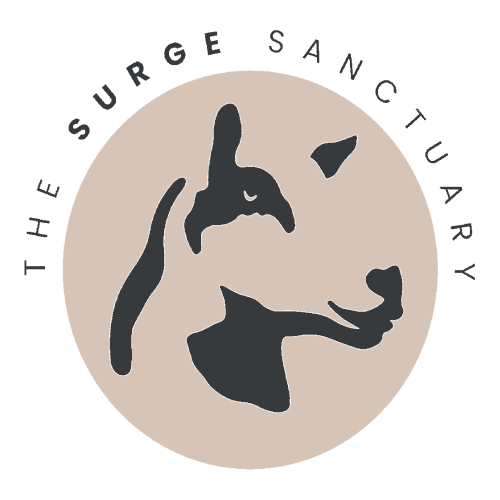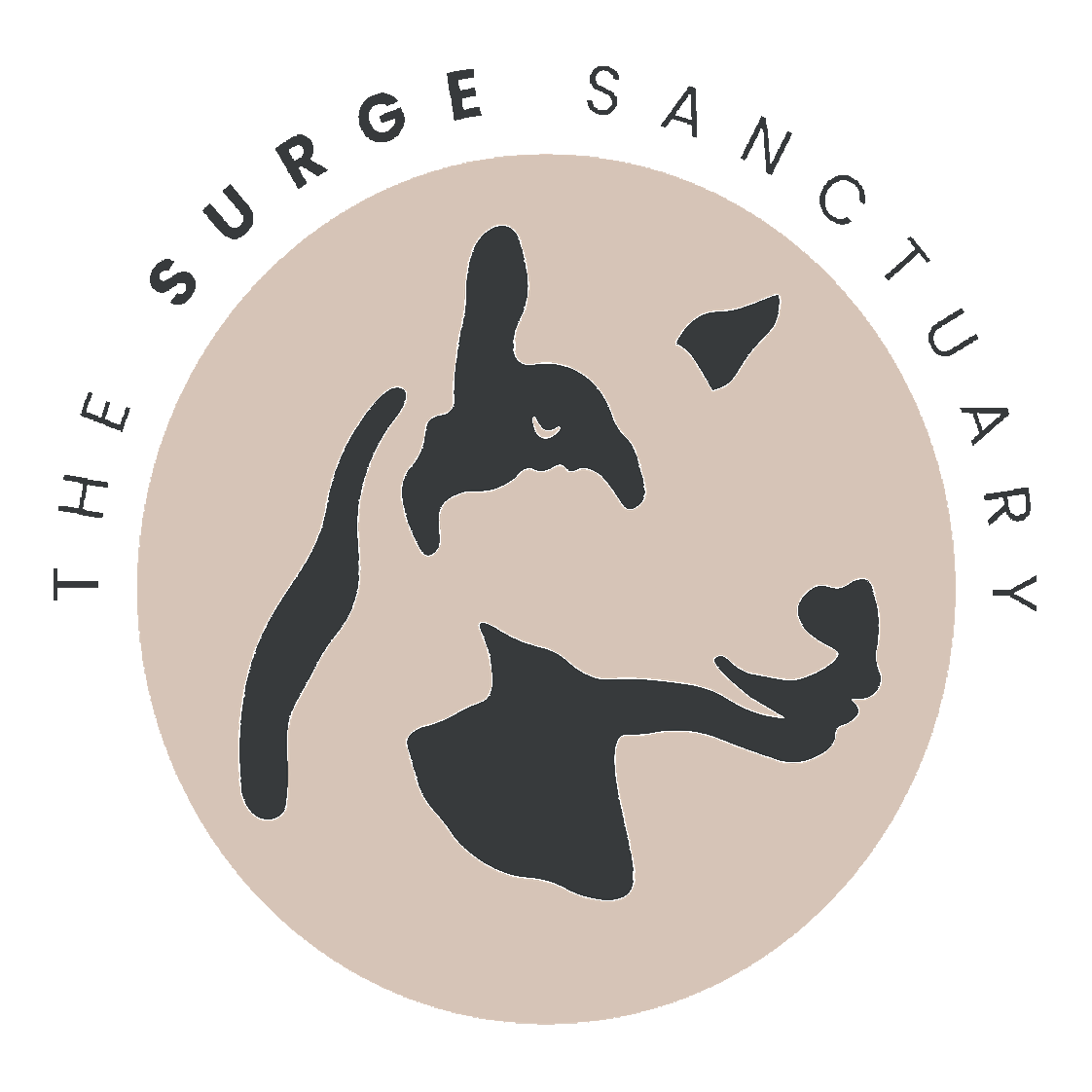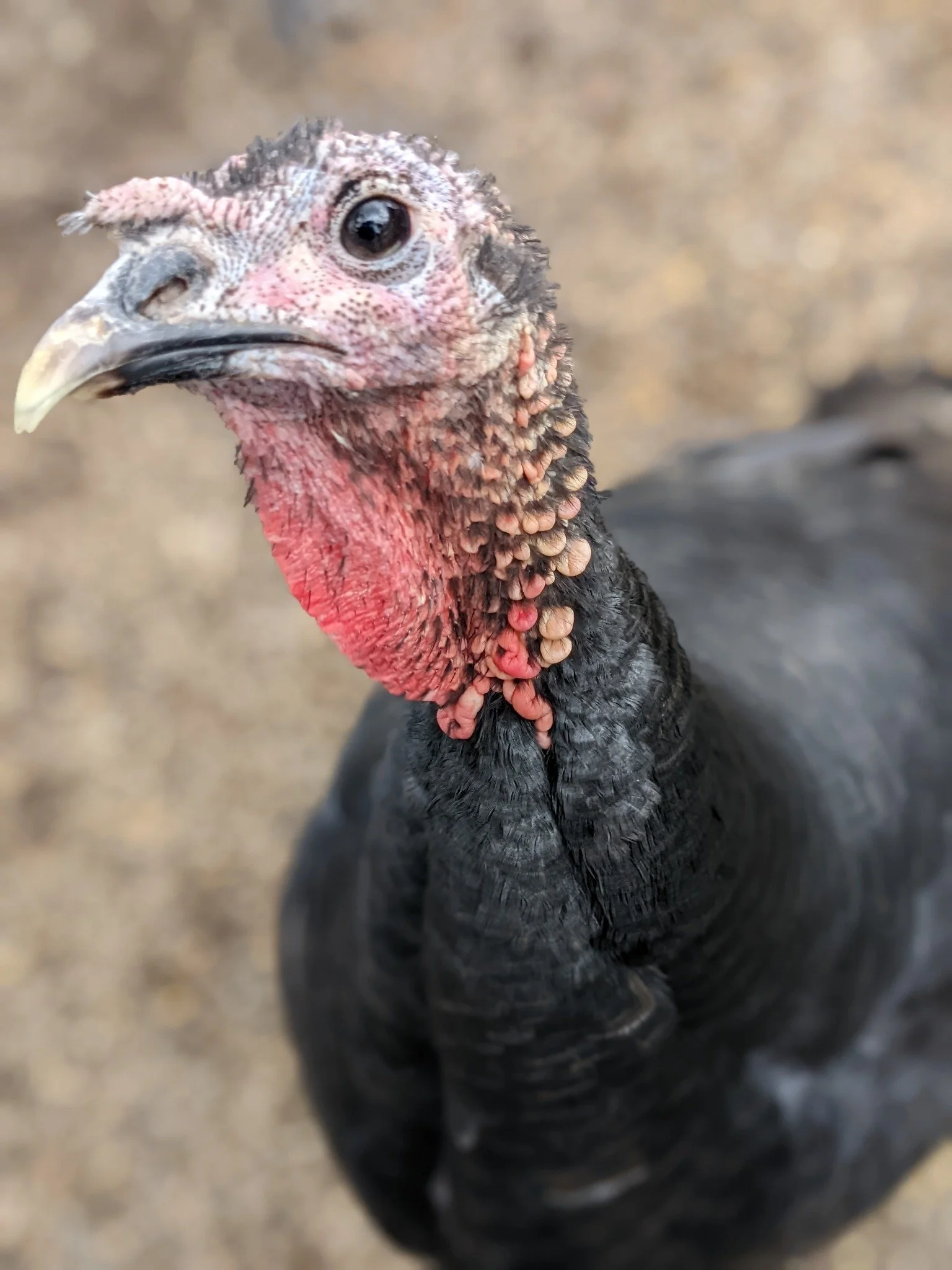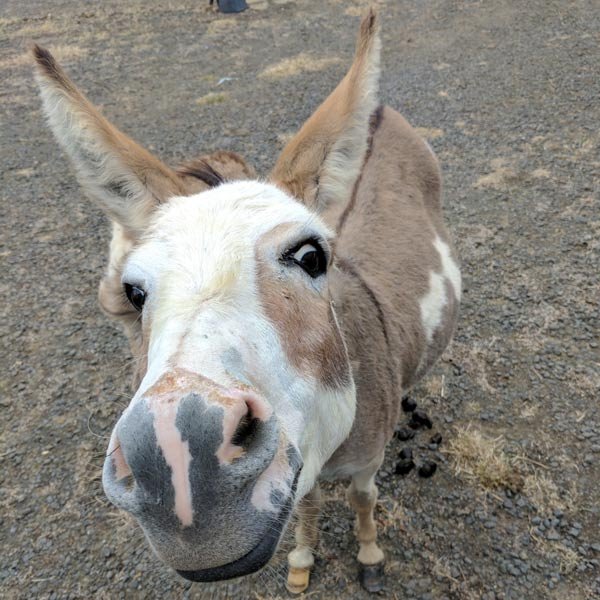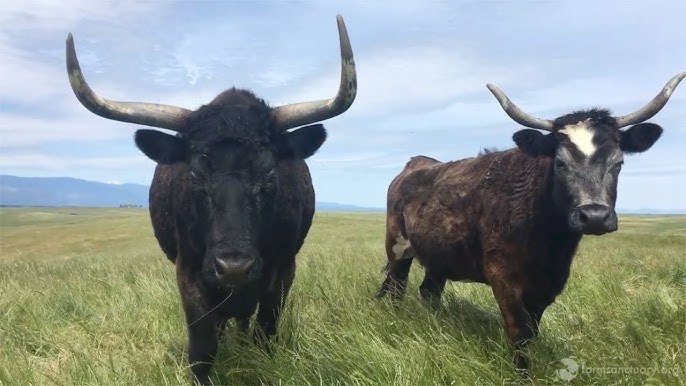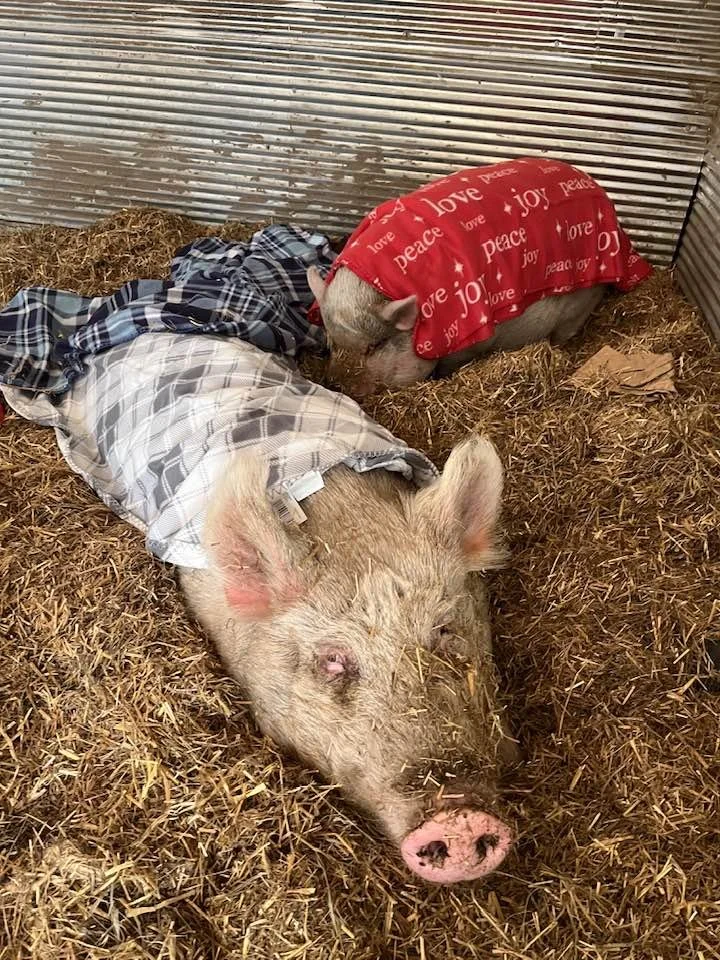Sanctuary Tales Part Three: Digging Deeper
Photo: Unity Farm Sanctuary
In the second instalment of this blog series, we looked into the social lives of rescued animals living together in a sanctuary, discovering the distinctive ways in which individuals' personalities shine through and the unique bonds which can form between different species.
In this third instalment, we will dive deeper into the psychology and well-being of rescued individuals, recounting stories of past trauma, distress, and grief, but also love, connection, and healing.
Q: Does any animal struggle with social interaction due to past trauma?
Sadly, at Unity Farm Sanctuary in Massachusetts, there are quite a few animals who exemplify how past trauma still impacts them, years later: ‘One is a tiny miniature horse who had been abused and arrived here fearful and stressed, on top of being partly blind. No one could touch him, and after 5 years he is calmer but still will not permit a human to initiate touch. We sit quietly and read to him, and he will sometimes initiate touch. He lives in our Healing Haven Barn, and the quiet there helps him. Another rescue who shows signs of past trauma is George the Minipig. He was a house pig living with a young woman and her husband, but his house burned down! He was rescued in the nick of time by firefighters, but he lost his tail in the fire. The house was a total loss, but once the local animal control returned George to the young woman, he was made to live in the burned-out basement for months. The husband of the woman left her, plus the house was uninsured so it was not rebuilt. And as winter approached, he could not live in the house further. Sadly, after he moved to our sanctuary, the young woman never visited George. Pigs are smart and emotionally bonded, and he still shows signs of this emotional upheaval.’
Loki’s Lodge in Australia has a ‘gorgeous miniature donkey named Tinkerbell. She was very poorly treated and came to us terrified of people. Our founder Danielle was able to pat her and halter her on the day she arrived but no one else. It has taken years for us to be able to earn her trust, she is not there yet with strangers but she has come a long way. We also have a very large pig named KC. We don’t know what happened to her in a previous life but struggles with being around anyone for too long. She is a funny girl, she comes up and snorts for attention but then snaps if you get too close.’
Photo: Loki’s Lodge
Q: Has any animal shown clear signs of grief over the passing of another animal?
Farm Sanctuary (California, USA) shared with us a very touching moment, specifically Curly the cow’s final moments and his herd's loving response: ‘Blake knew something was wrong. All of the cattle knew. Curly, our steer, was dying. We rescued Curly from a neglect case in 2010 together with his herd mate Rosy. For years, they lived contentedly. [Then,] Curly developed an inoperable cancer. We made sure he spent his last days with his herd. One by one they gathered around him. They tried to get him to stand but he could no longer lift his head. It was time to let him go. The herd stayed close to comfort him. And when the time came, Curly felt no pain. Blake let us know it was time to leave them. And we did know that Curly died as he lived surrounded by his herd and free.’
You can watch the video of the herd gathering around Curly on Farm Sanctuary’s Youtube channel.
Photo: Farm Sanctuary
In Australia-based Edgar’s Mission, ‘Jiminy and Cricket were two young goats who arrived in 2020 after a kind heart alerted us to their plight. Jiminy arrived blanketed in dirt and pain, his neck pitifully and awkwardly twisted, the savage legacy of an encounter with a predator. How our hearts melted when we would come to Jiminy’s stall to see him sidled up asleep next to his buddy Cricket, who had wriggled himself just that little bit closer, leaving us with no doubt of their shared emotional bond. Dealt the cruellest of hands that neither love, kindness, nor the best veterinary intervention could free him from, we had to say a heartbreaking goodbye. Cricket had never called out since they both arrived, but cry he did as we walked down the alleyway to his stall carrying Jiminy’s lifeless body to him for a final farewell. Inching closer as we did, he cried some more. As we placed Jiminy’s body next to his, we cried too, he gently nudging at Jiminy, then looking painfully into our tear-filled eyes he silently spoke, “He ain't going to get up, is he?” There is a knowing that comes from watching animals in grief, a knowing that tells that when it comes to mourning the loss of a friend, we are separated by species alone, and not emotion as we are so often told.’
‘When Rosie the pig arrived [at SoulSpace in Wisconsin, USA,] we didn’t realize she was pregnant. One morning Kara found a baby pig with Rosie, she had given birth during the night. Her other babies were dead. Rosie was a wonderful mother but accidentally stood on her baby. The baby didn’t survive and Rosie was depressed for days afterwards.’
Photo: SoulSpace
Just like humans, animals experience deeply complex emotions, as beautifully and sometimes tragically conveyed by the stories shared in this blog. The physical and mental pain individuals inevitably bring with them when they are rescued from abandonment, slaughter, and abuse make sanctuaries a bittersweet place of both love and loss, of hurt and healing. Thank you to every sanctuary supporter, worker, volunteer, and activist, who faces this burden head on and makes healing a possibility.
Tatiana von Rheinbaben is a global citizen with a bachelor’s in molecular biology and a master’s in environmental engineering. After an internship at the Fraunhofer Institute in Germany and an internship at The Not Company in Chile, Tatiana started working for Surge as a project manager.
Cloe Sousa is a global citizen and vegan activist whose mission is to help create a world kinder for all earthlings, where justice prevails over selfishness. She’s the founder of the Vegan Activism Instagram community and the author of A Guide to Veganism: What the World (& You) Need to Know. Cloe is currently pursuing a Bachelor of Science in Natural Resources Conservation at the University of British Columbia.
Devon Docherty is a Surge writer and animal rights activist with a master’s degree in Human-Animal Interactions. Connect with Devon on LinkedIn.
